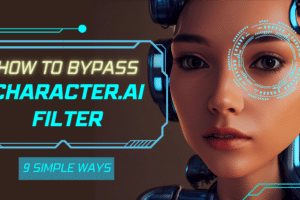Whether it’s SEO for lawyers, B2C companies, for retailers, or any other industry, you can’t overlook its importance.
SEO stands for search engine optimization, and it refers to improving the visibility of your website when people are searching for services or products related to whatever your business is in a search engine like Google.
Search engines will use bots that crawl web pages. They move from site to site, gathering information about pages and then indexing them. Algorithms will then analyze pages in the index, considering hundreds of signals or ranking factors, determining the order in which pages should appear in search results for any given query.
In contrast to paid search ads, you can’t pay to rank organically in search engines, so you need SEO expertise, or you need to outsource this work.
Below, we talk about six essential SEO elements that every business should understand.
1. Indexing and Crawling
If Google isn’t able to crawl and then index your site, you’re not going to show up in search results, no matter what. This is an important part of SEO you need to get right. Google is always crawling websites using bots and discovering pages. Crawlability is a term that refers to the ability to Google to find your content.
Content is discovered through links, and once content is crawled, the crawlers transmit data back to Google. From there, Google can analyze pages and add them to their index. Only an indexed page can show up in search results.
You can do things to make sure your site is crawlable and indexable, including uploading a sitemap, adding internal links between your own pages, and checking your robots.txt file.
2. High-Quality Content
High-quality content is what Google says is one of the most important aspects of SEO. Your goal is to provide users with content that’s relevant and gives them a great experience. Your pages need to be accurate and useful, and they also need to provide what searchers expect when they click through to your page.
Many things can make content low-quality, including when it’s duplicated from elsewhere, thin content lacking substance, and automatically generated content.
Along with the idea of high-quality content is something called E-A-T. This stands for expertise, authoritativeness, and trustworthiness. You need to demonstrate E-A-T for your site as a whole and all of your pages and pieces of content, especially if you have a site that affects someone’s health, financial well-being, or happiness.
Expertise means the author of your content has some level of expertise in the content topic. Authoritativeness focuses more on your site’s overall reputation, and then trustworthiness comes from things like accuracy in the information you provide and positive reviews.
3. Backlinks
Backlinks are links that point from external sites back to yours, and they’re arguably the most important element of SEO. Google looks at both quantity and quality when assessing your backlinks, so the more links back to your site you can acquire from high-authority sites, the better.
While there are elements of your link profile that are out of your control, there are also things you can do to improve it.
You can create high-quality, valuable content that other sites want to link to. You can also do outreach. You can email websites and suggest linking to your page. You can also write guest posts for other sites and include links to your own within the post. You may want to work with an SEO Link Building Agency Focused on Your ROI for the best results.
You don’t want to do things that Google is going to view as spammy, like buying links.
4. Mobile-First SEO
Google has made it very clear that its approach is mobile-first.
According to Google, mobile-first indexing means the search engine primarily uses the mobile version of the content for indexing and ranking. The index in the past would use the desktop version of the content in the evaluation of the relevance of a page compared to the query of a user. Now, since most users access Google with a mobile device, the bot crawls and indexes pages using a mobile-first approach as of 2019.
You have to ensure the Googlebot can access and then render your content. You should use the same meta robot tags on both your desktop and mobile site and make sure that Google can see your lazy-loaded content.
Something else to bear in mind with mobile-first SEO is that your mobile site needs to have the same content as your desktop site. You want to make sure the mobile site content is at least equivalent to your desktop.
5. Keywords
In the past, with SEO, you would see sites and content creators using the keyword stuffing methodology to rank. That made content hard to read, and it negatively affected the user experience. Now, keyword stuffing can hurt your rankings.
Search engine algorithms are growing more advanced by the day, to the point that they can look beyond keywords to figure out what a page is about.
While applications of keywords have changed, these still remain one of the most important elements of SEO.
You want to include your target keywords in the title tag of your page, your H1 heading, and your meta description. You also want to use it several times in your content and try to put it in the first 100 words.
At the same time, you always want your keywords to sound natural when you use them and improve the experience of your users.
6. Intent
Finally, another element of SEO to be aware of is search intent. The intent is what a user is hoping to accomplish by using a certain keyword. You want to have a close understanding of every keyword you’re targeting.
Three of the most common types of intent are informational, navigational, and transactional.
With informational intent, a user wants to learn more about something. Navigational intent means the user wants a certain page, and transactional intent means they want to make a purchase.














Add Comment